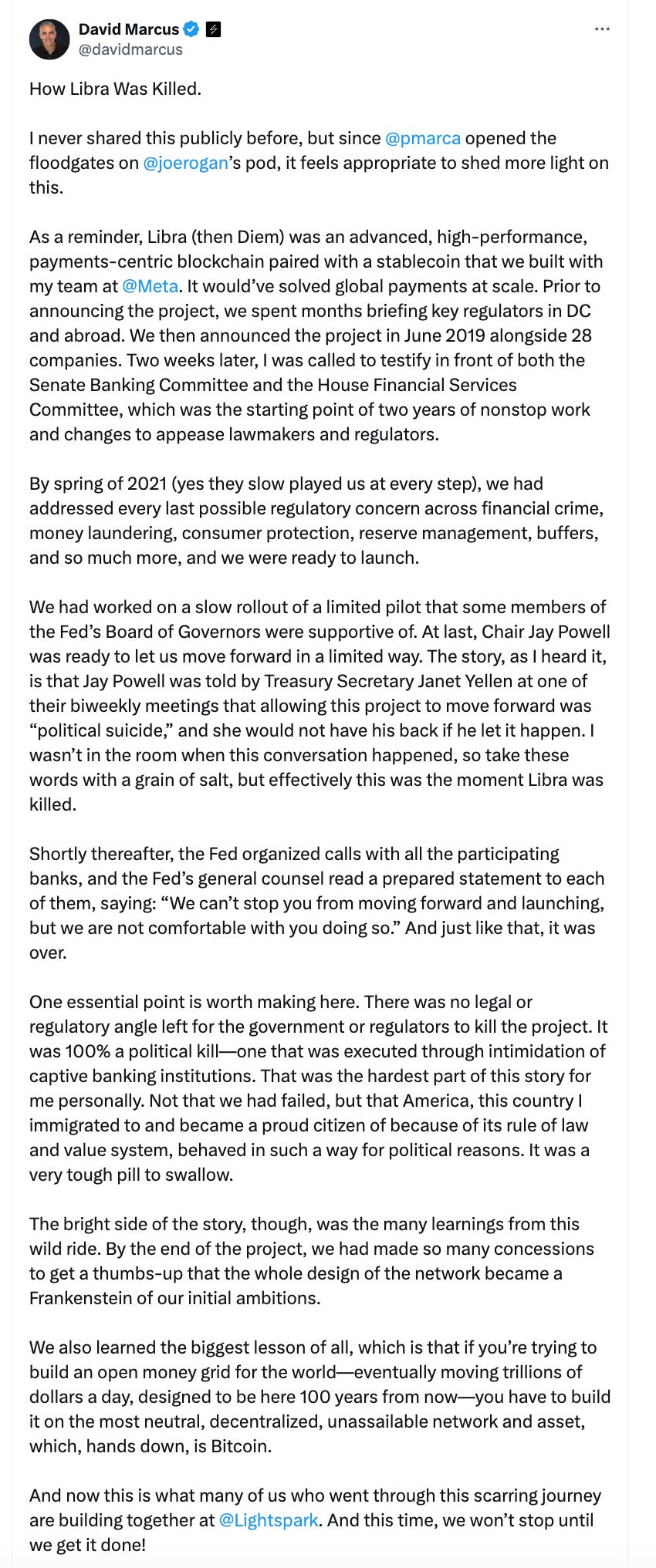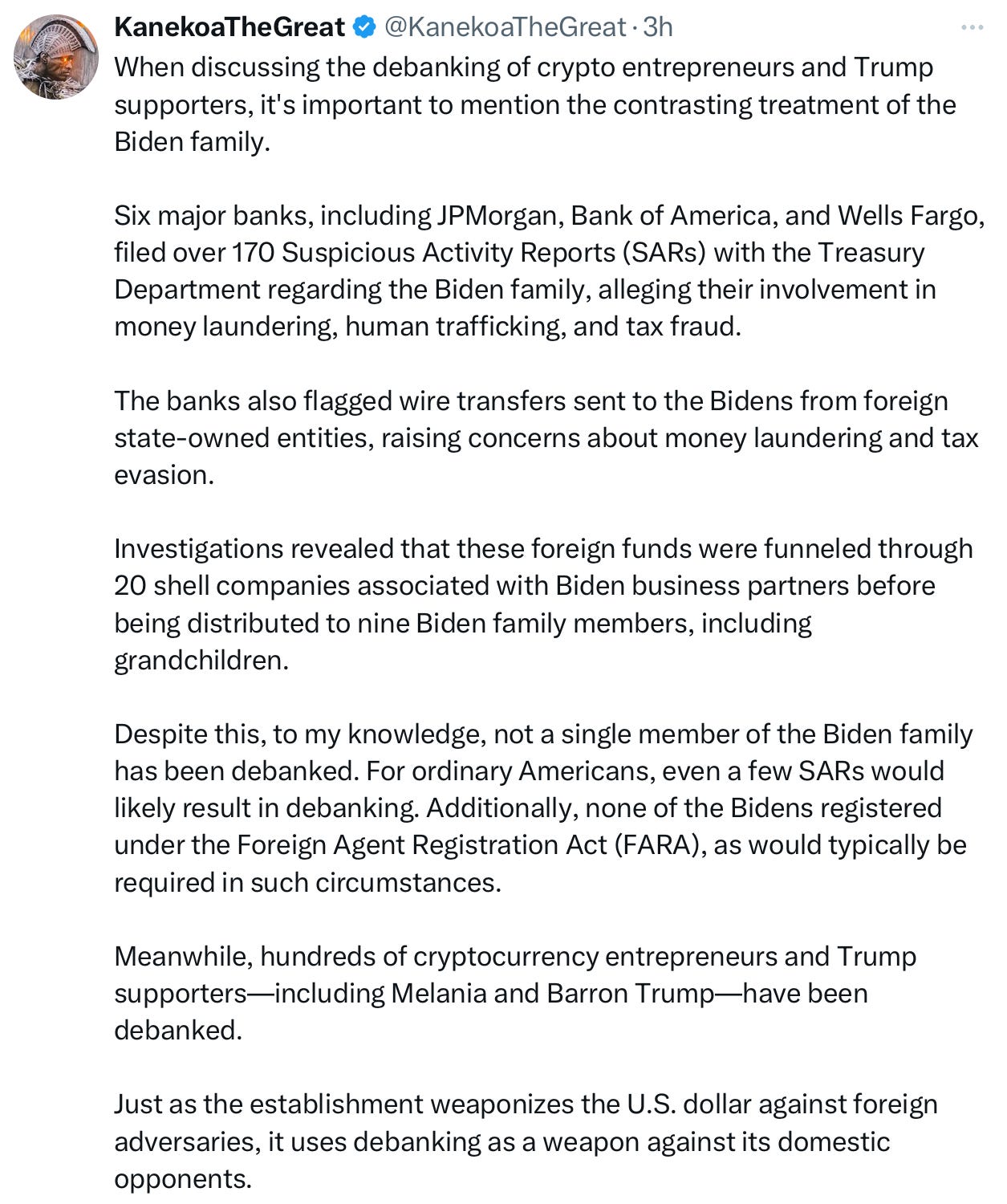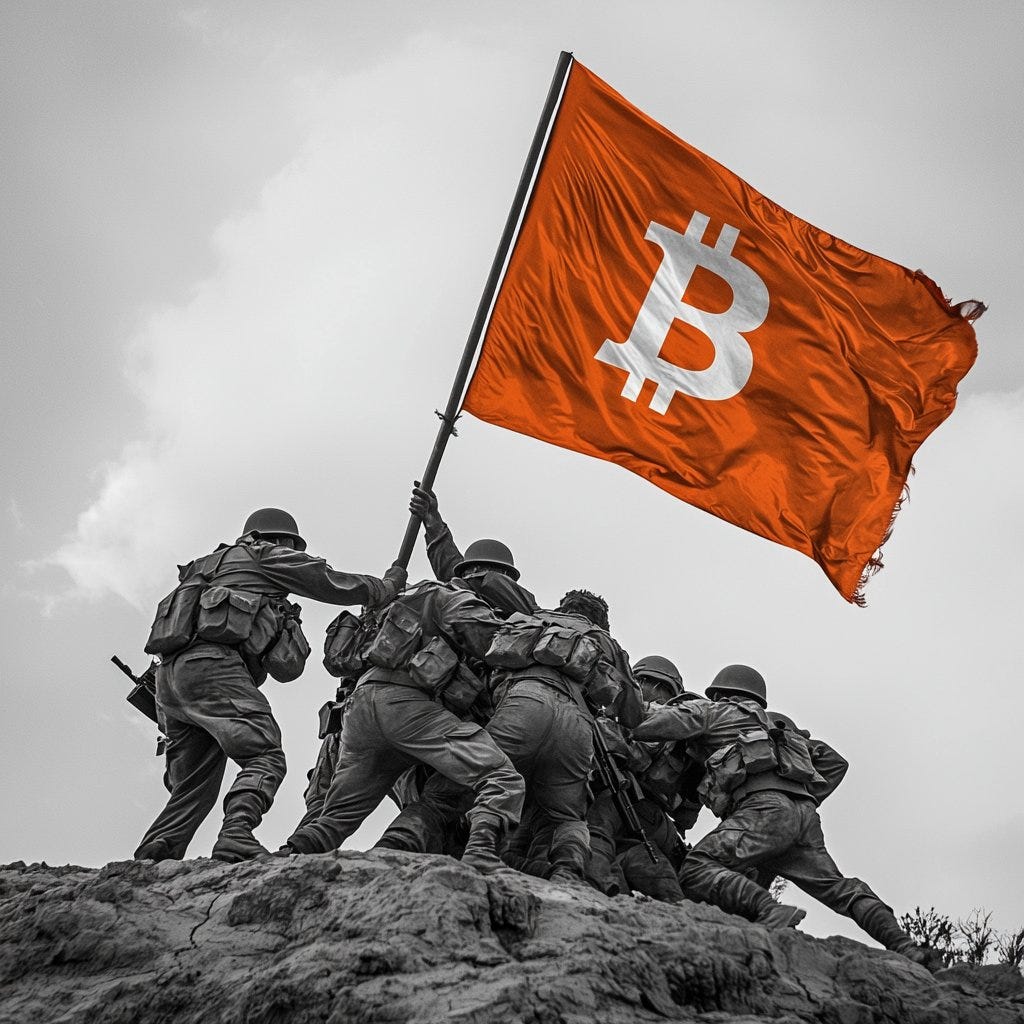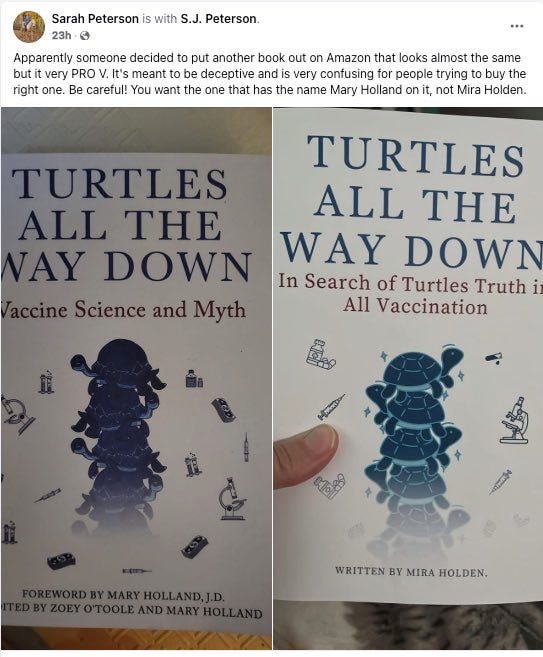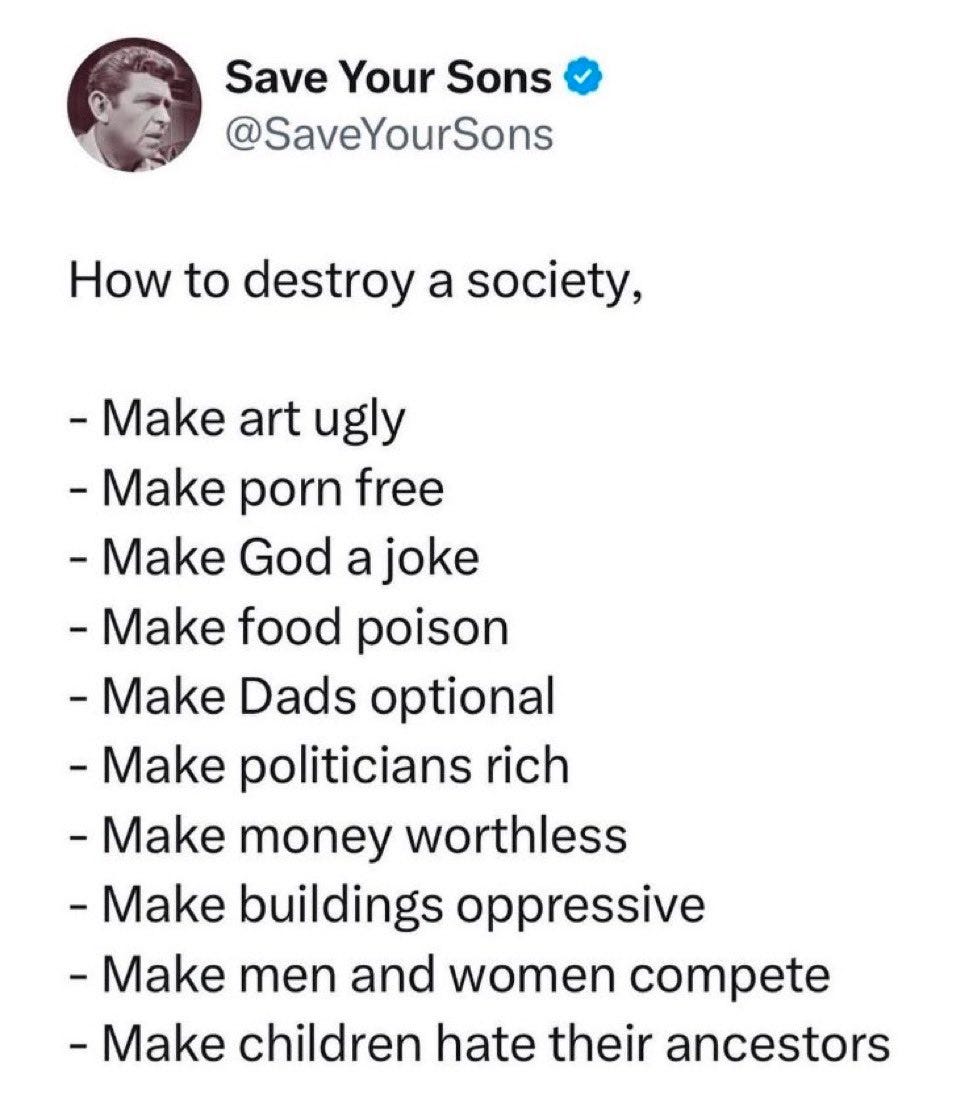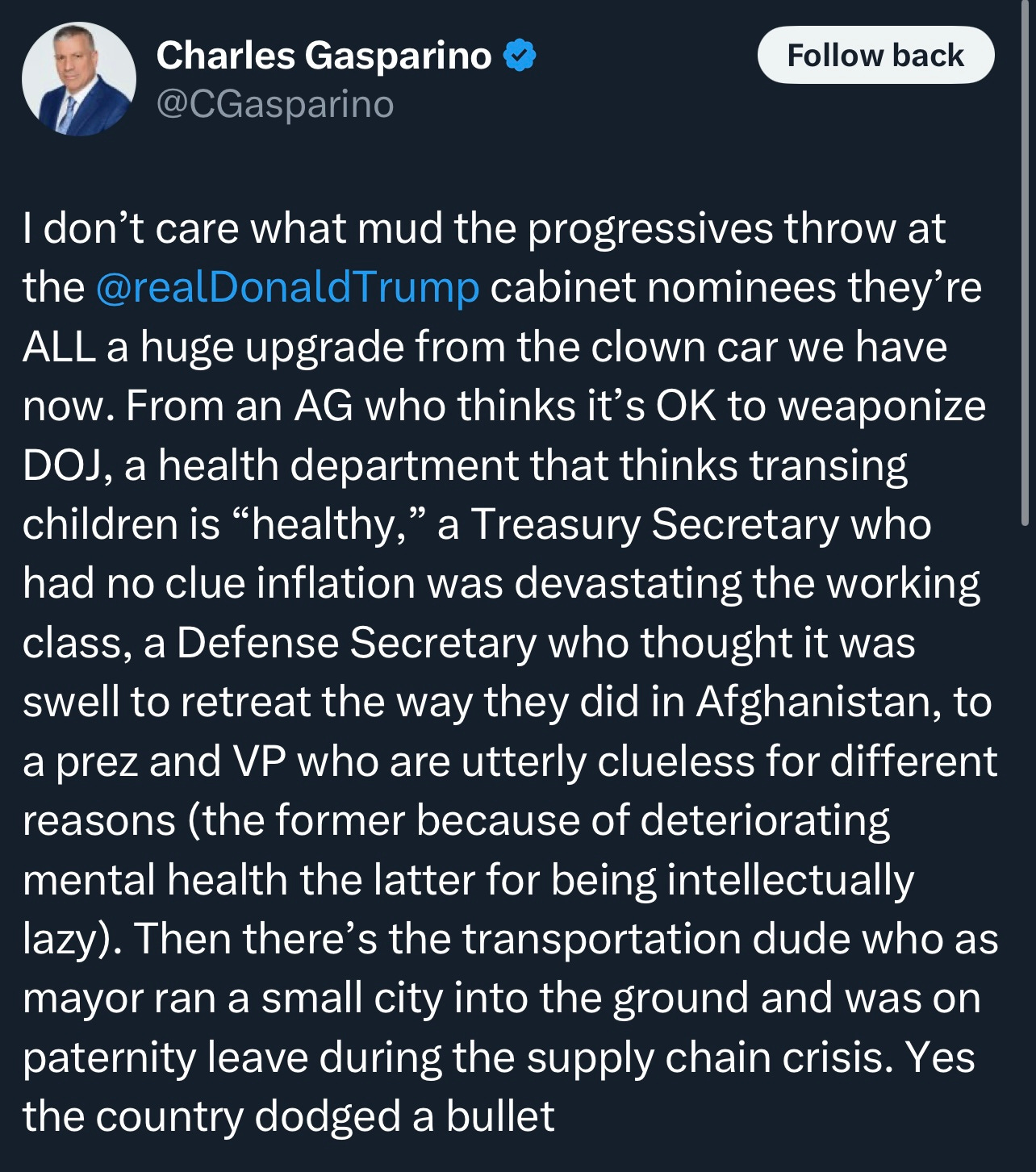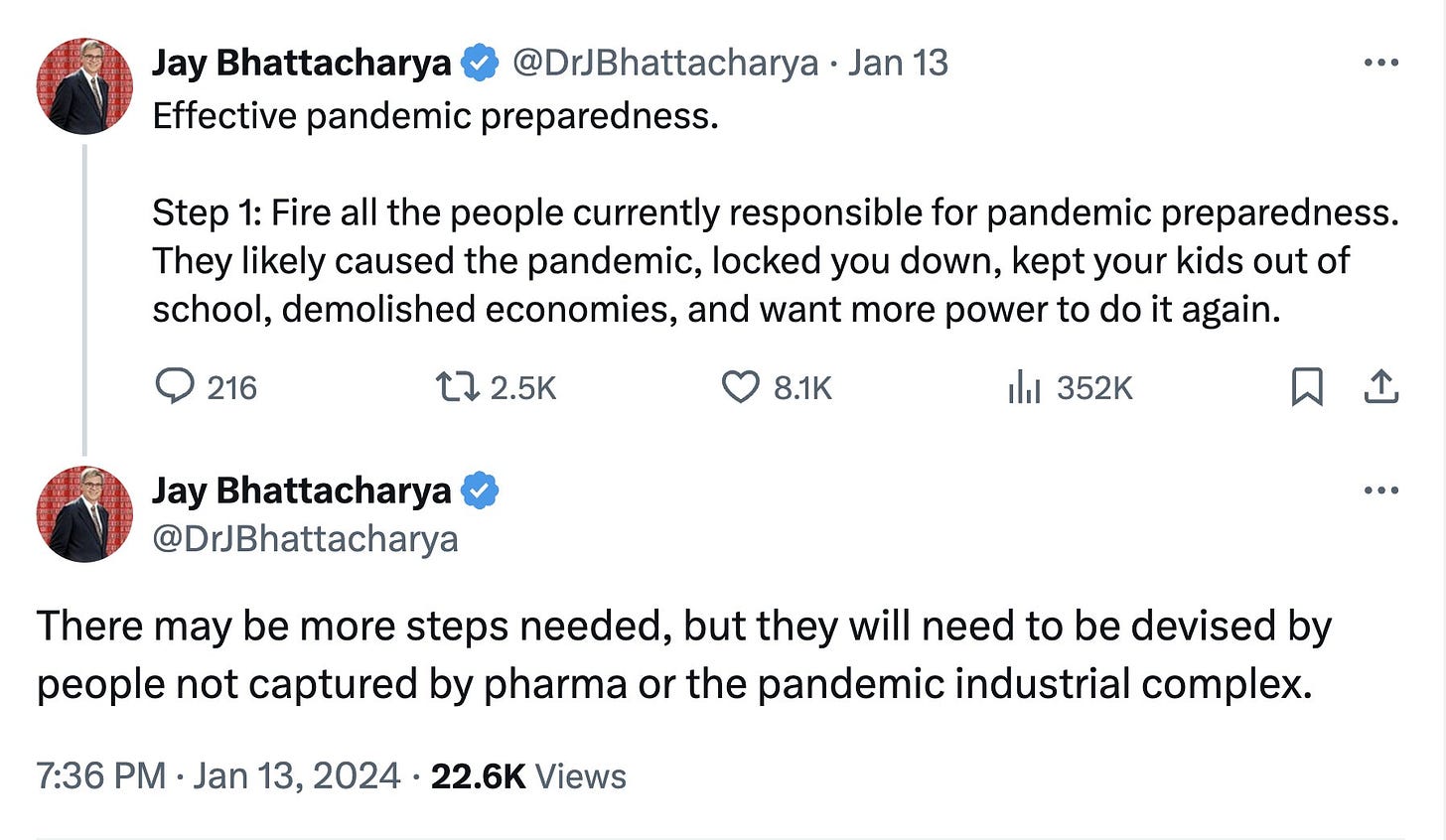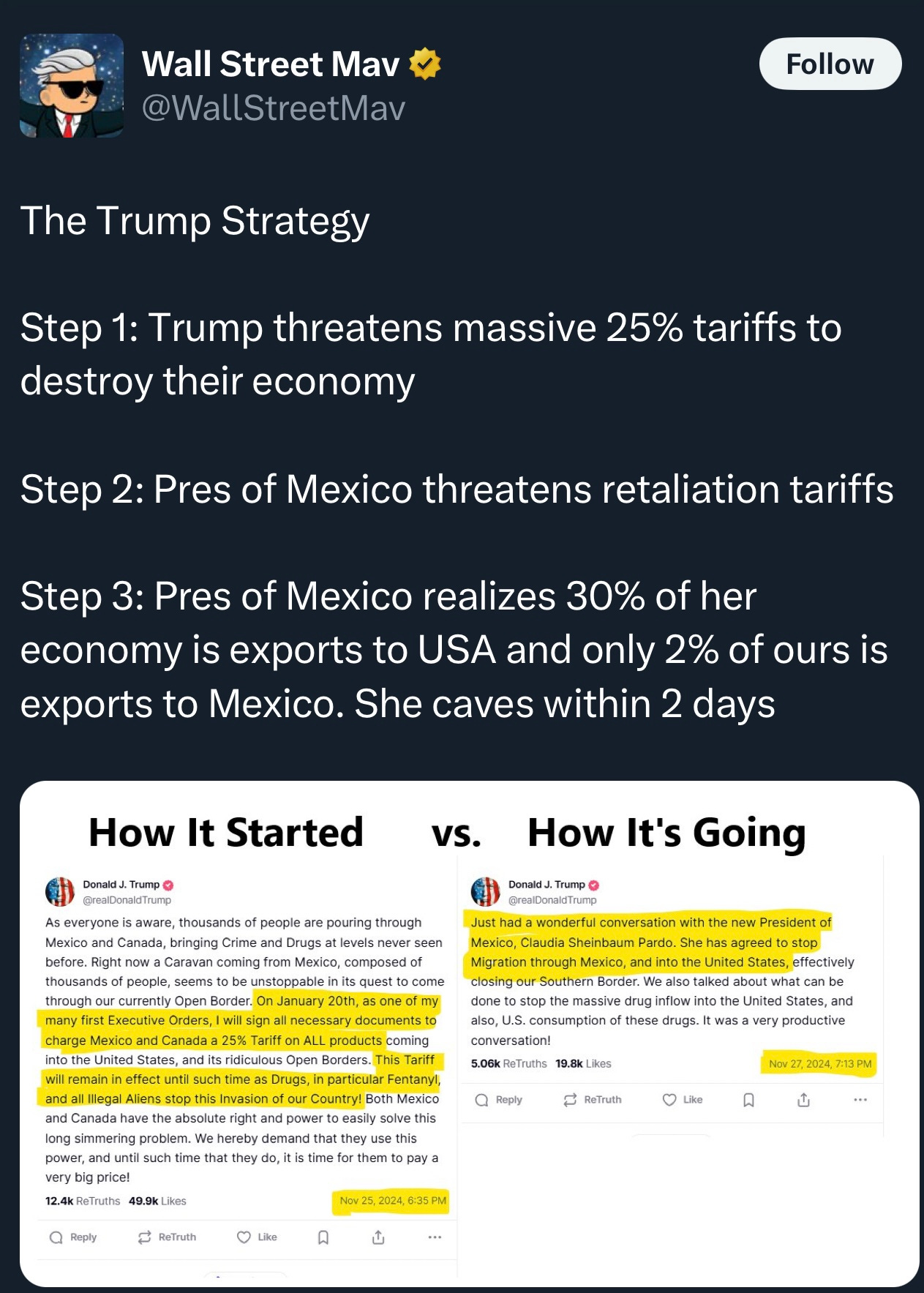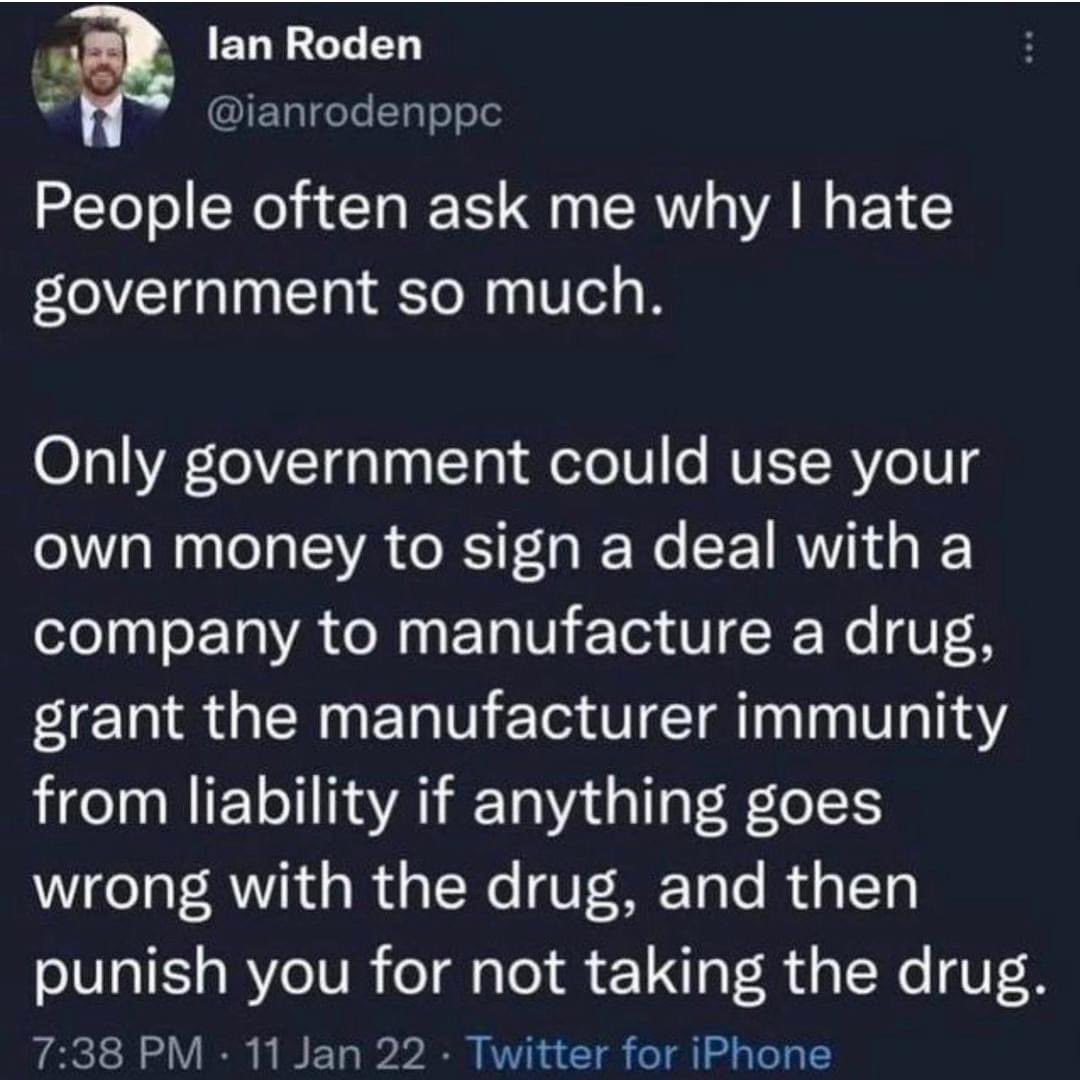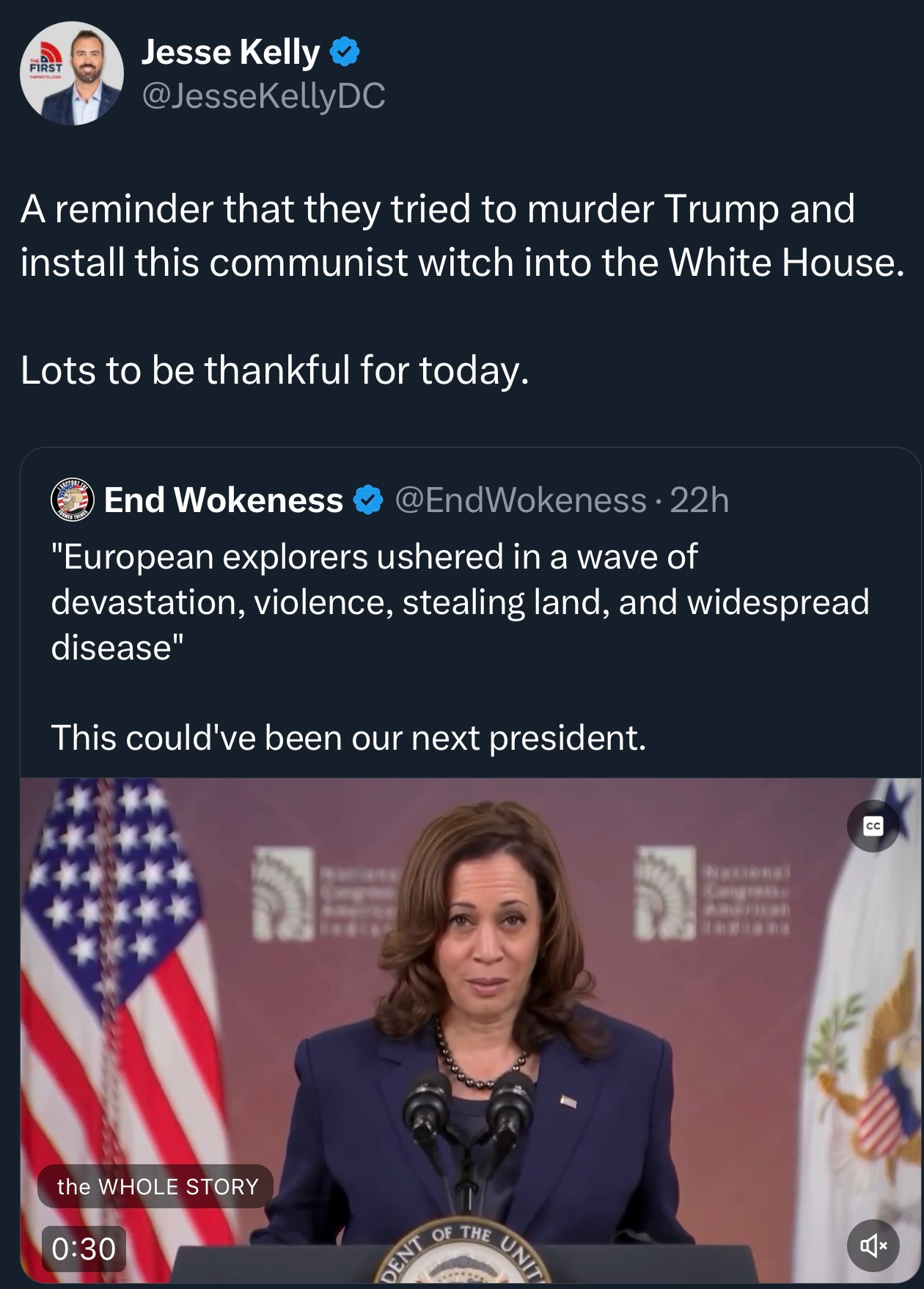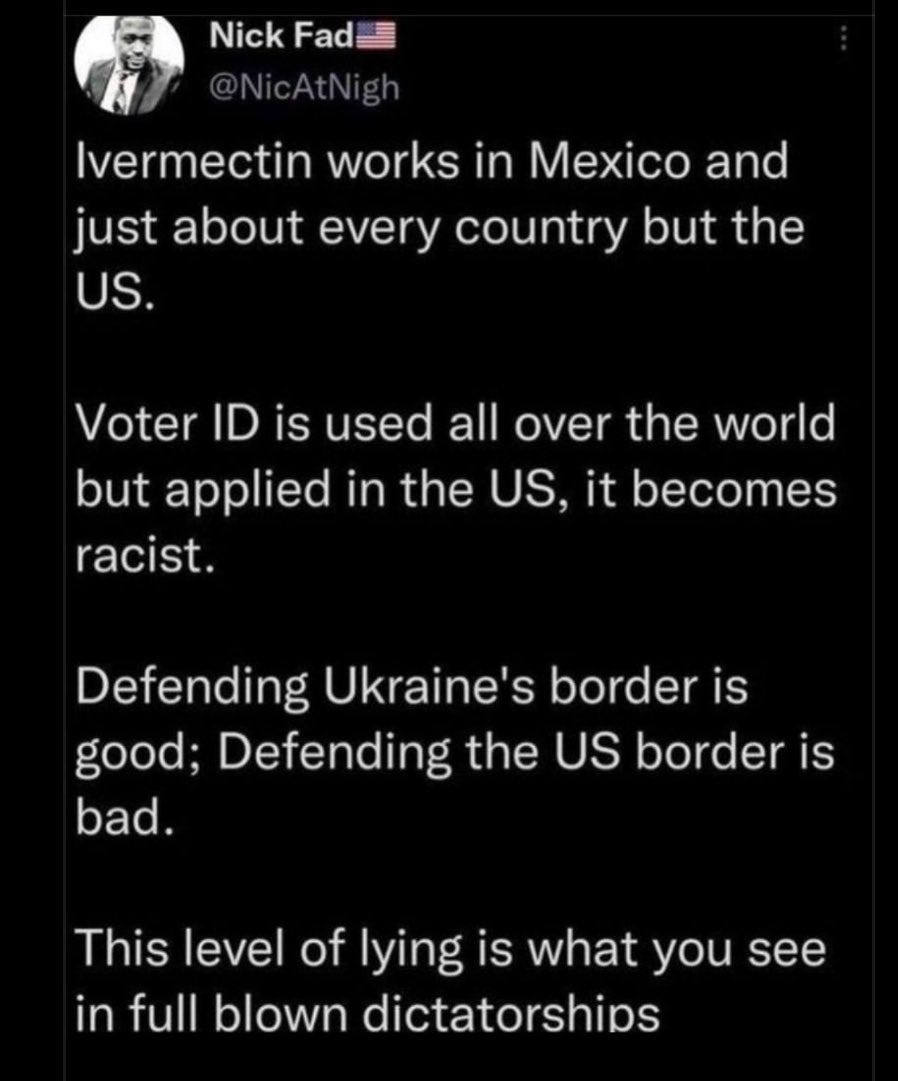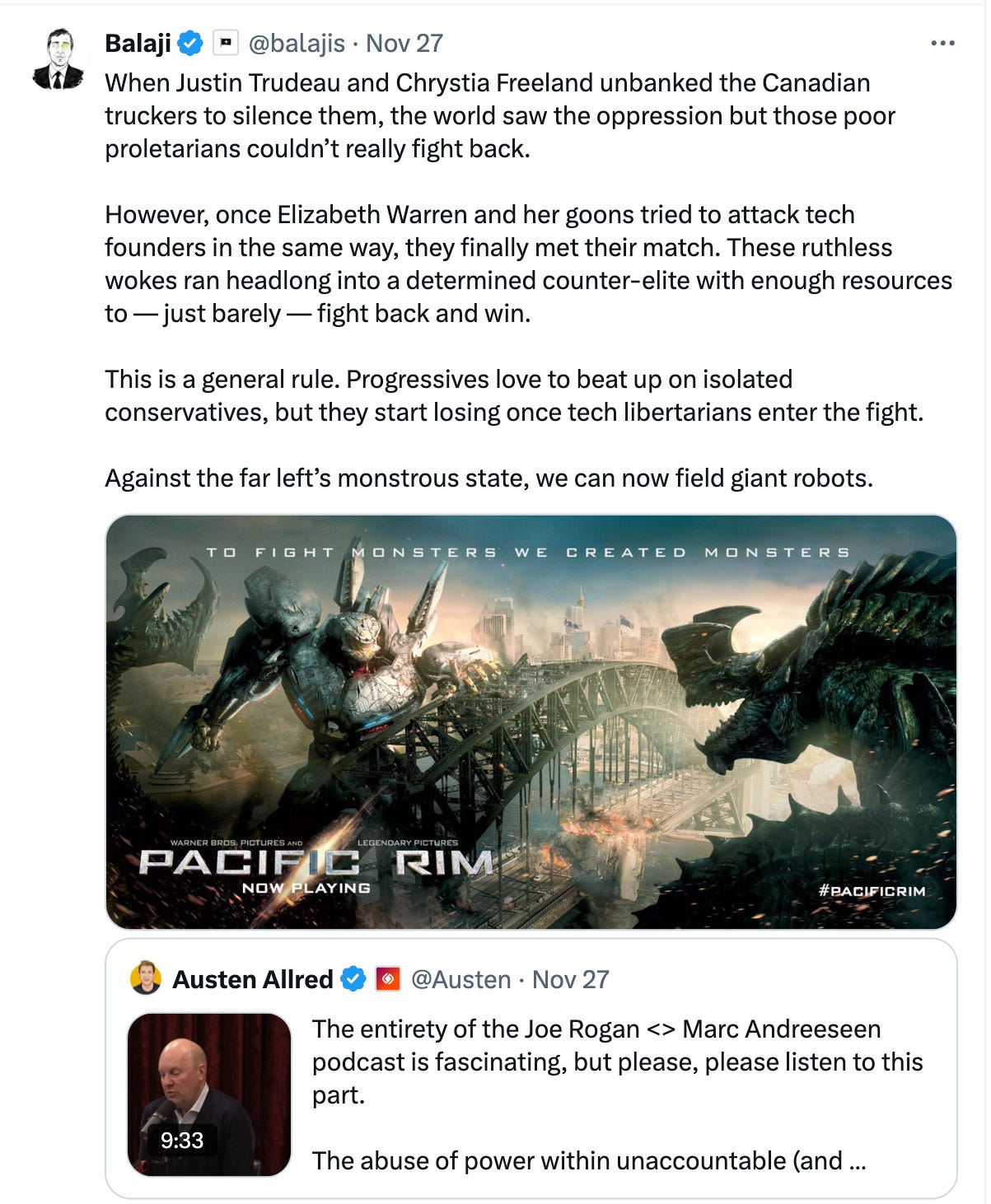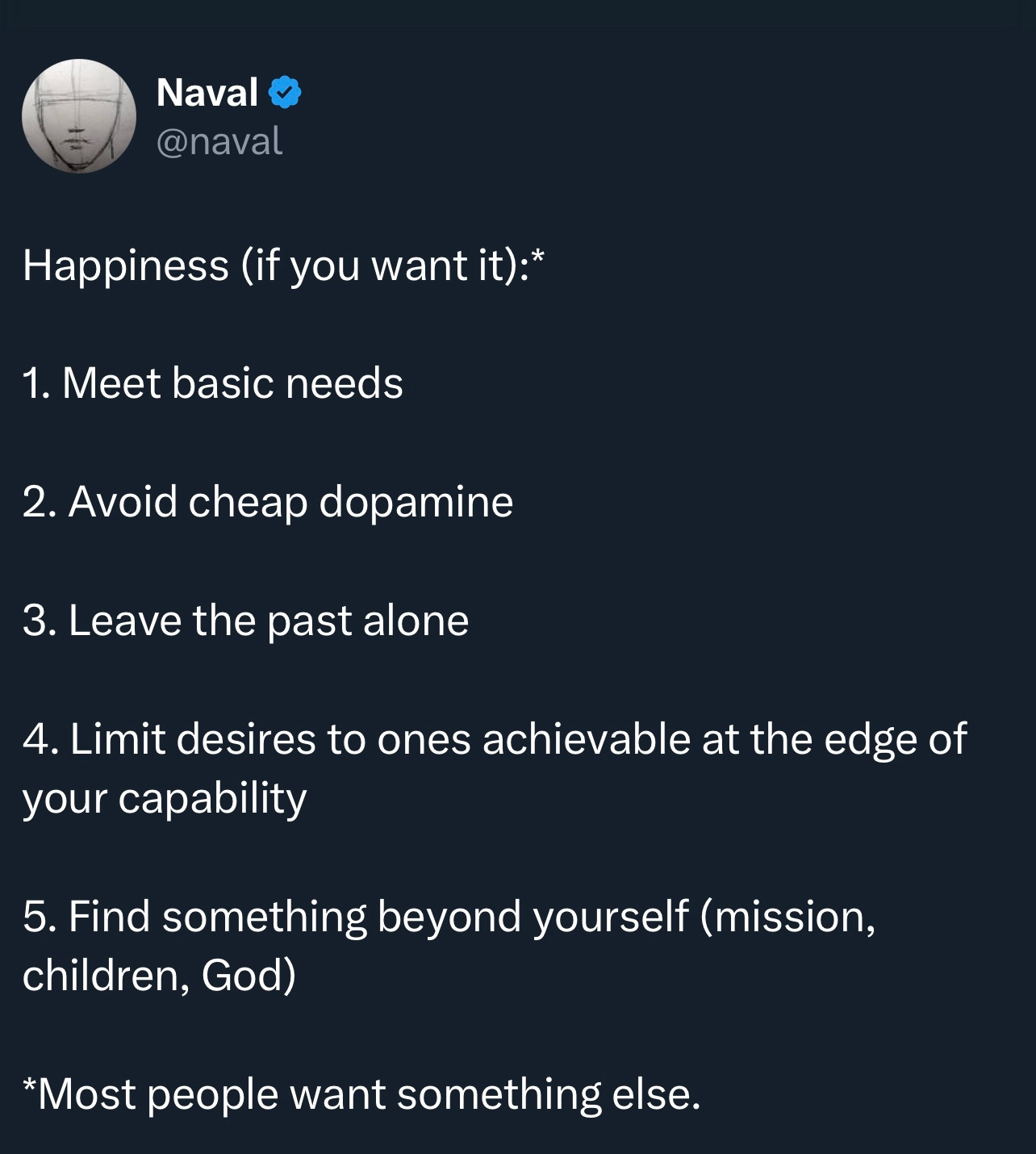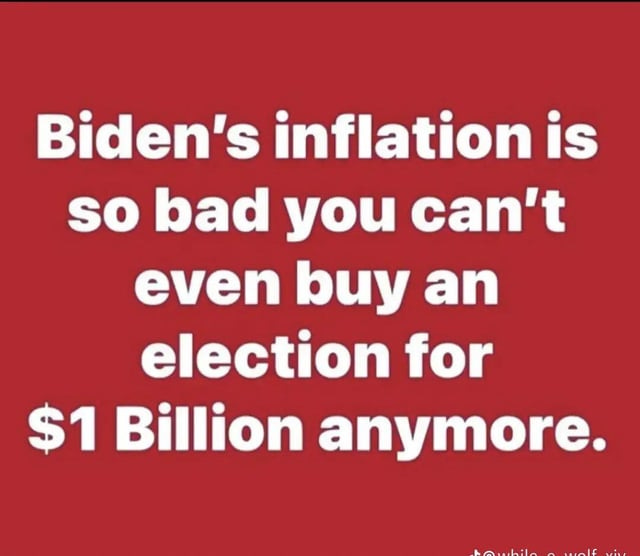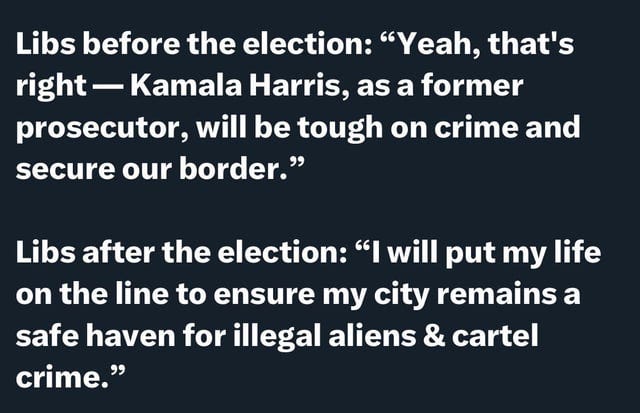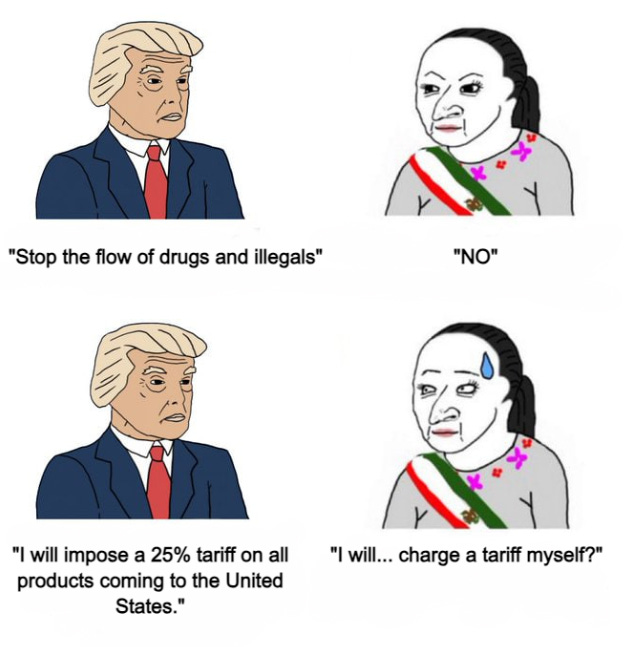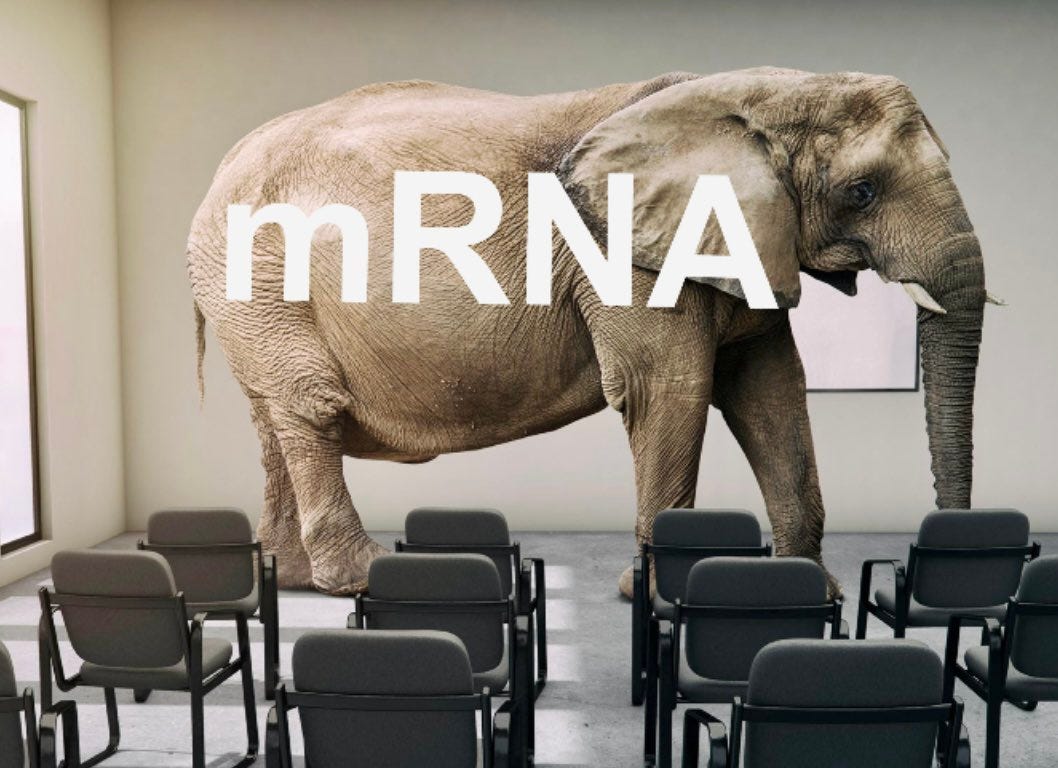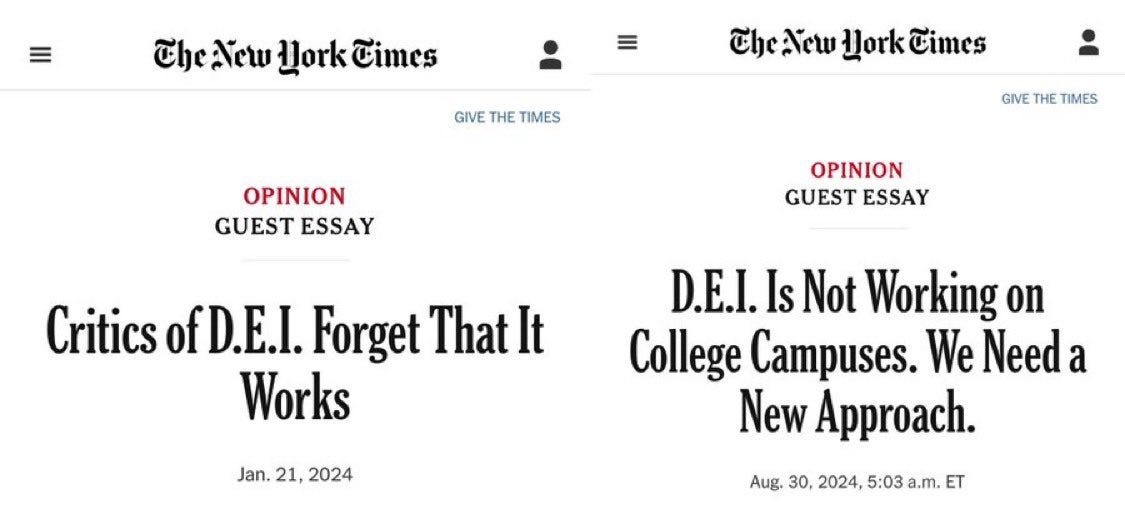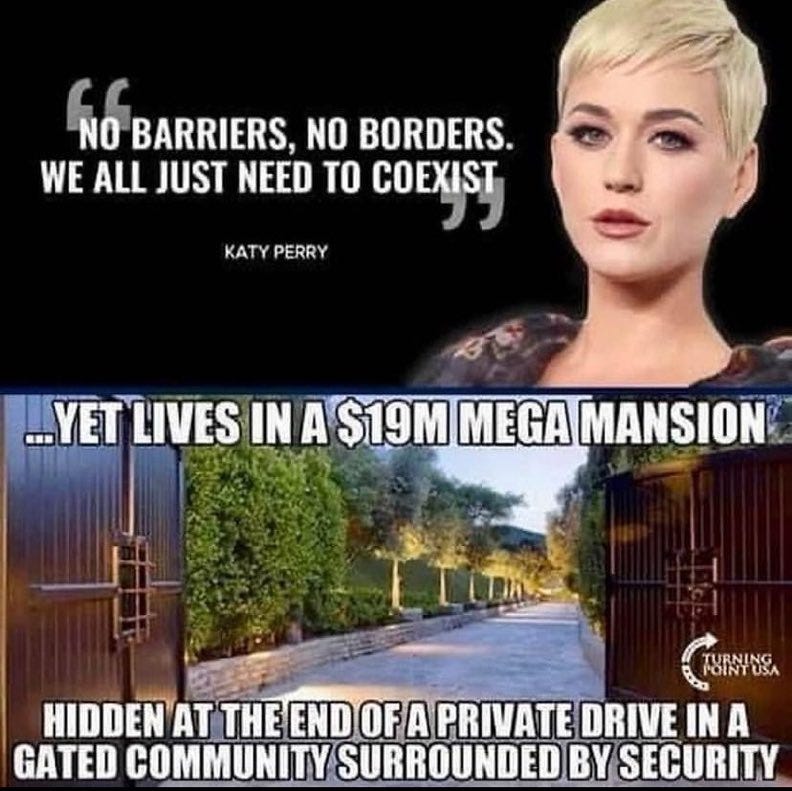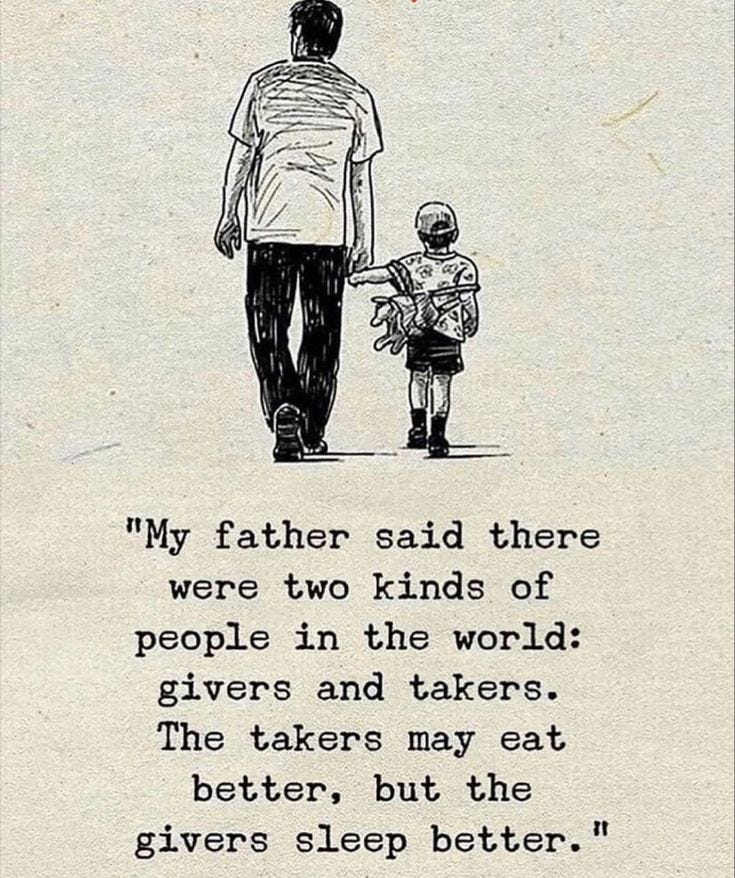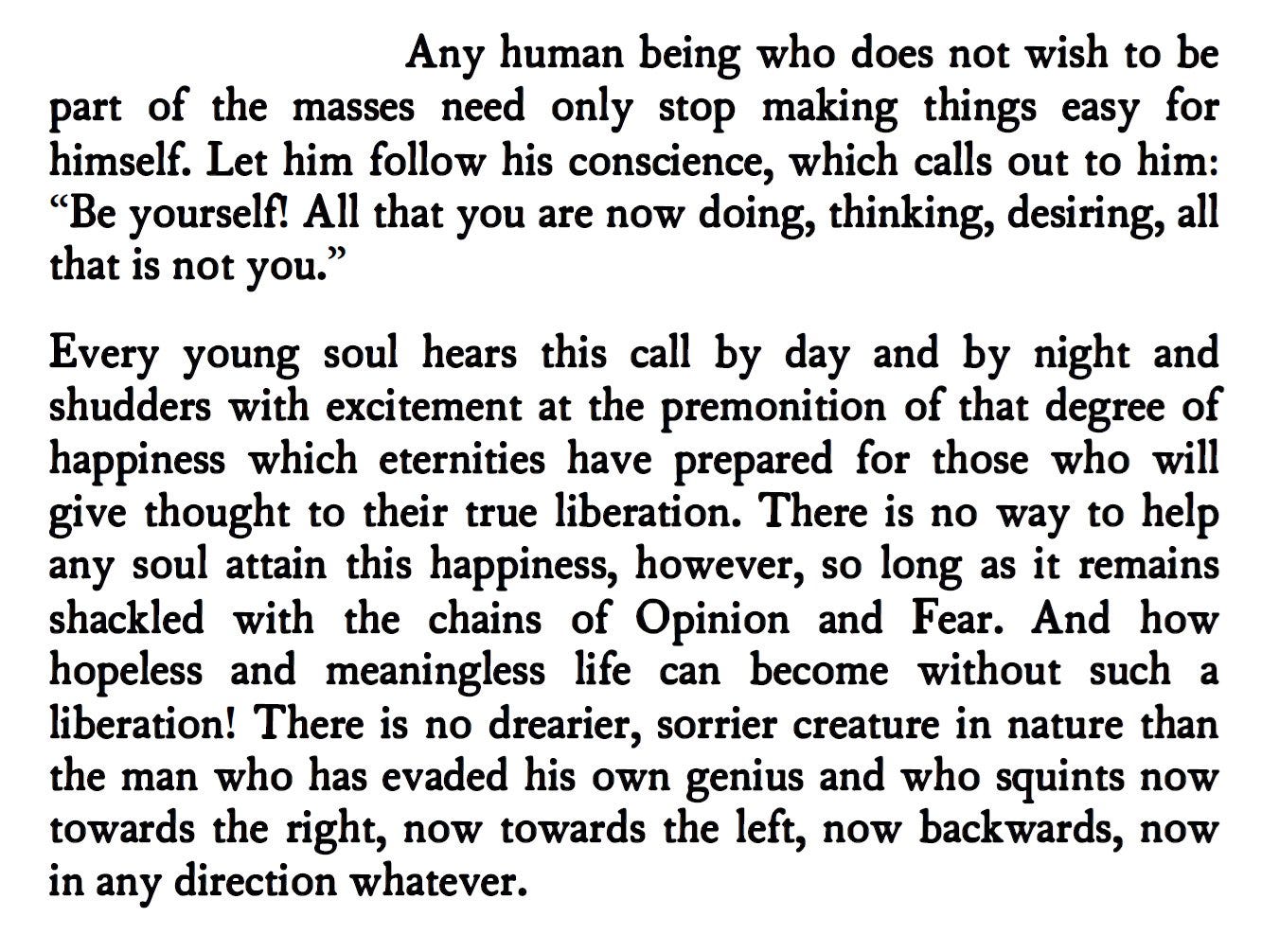The Battle We Just Won — And the War That Must Be Fought
End the Financial and Legal Weaponization
Relatively slow, holiday news week. So I’m going to focus on one aspect of the prior week. If you haven’t watched the Joe Rogan - Marc Andreessen podcast, it’s worth a watch. I’ve included a clip below that will give you the gist of it, and the full episode farther down.
Andreessen is one of the most renowned entrepreneur, investor, and software engineers of the last 50 years, best known as the co-creator of the first widely used web browser, Mosaic, and co-founder of Netscape and the venture capital firm Andreessen Horowitz.
On Rogan, he provides a revealing account of the authoritarian and unconstitutional actions taken by the now-disgraced Biden-Harris administration to shut down key tech leaders access to the financial system.
File this one under “Most people have no idea how close we were to the noose closing.” At least most who don’t regularly read this letter.
History has always been a battleground of power, where empires rise and fall, and liberties are either guarded fiercely or lost to the creeping advance of tyranny. This election marked a turning point—not merely a victory for Donald Trump, but a resounding rejection of the creeping totalitarianism that has been methodically taking root in our institutions. It is a victory not just for one man but for the idea that power in America should serve its people—not subjugate them.
The signs of this encroachment have been clear, though their insidious nature made them easy to dismiss for far too long. Under the guise of governance and security, both Democratic and Republican administrations have used the machinery of the state to erode freedoms, consolidate power, and silence dissent. The Biden administration, building on this playbook, escalated these tactics with frightening precision.
The Weaponization of Finance: Operation Choke Point 2.0
As Marc Andreessen explained on Joe Rogan’s podcast, the Biden administration turned to the financial system as a weapon to silence and suppress its perceived enemies. Through a shadowy initiative dubbed “Operation Choke Point 2.0,” tech founders, political dissenters, and industries deemed undesirable found themselves debanked—stripped of access to the financial infrastructure necessary to survive. Over the past four years, as Andreessen noted, 30 tech founders have been debanked without recourse, without rules, and without explanation.
As Andreessen noted in the podcast (full episode and excerpt below):
"CFPB is Elizabeth Warren's private agency."
"CFPB's job is to terrorize new startups and increase hold of existing banks to prevent new competition."
"Privatized sanction regime that lets bureaucrats do what the US did to Iran."
"De-banking of Politically Exposed Person (PEP) is made legal."
"We have had 30 founders de-banked in the last 4 years."
"There is no rule, no court, no appeal, no due process..."
This weaponization of the financial system represents the kind of authoritarian overreach we associate with regimes like China, not the United States. The debanking of politically exposed persons (PEPs) has effectively become a privatized sanction regime, allowing unelected bureaucrats to act as judge, jury, and executioner without legislation, court judgment, or due process. The consequences are devastating—not just for individuals targeted, but for the principles of liberty and free enterprise upon which this nation was built.
The Biden administration’s misuse of the DOJ, FinCen and the Consumer Financial Protection Bureau (CFPB), described by Andreessen as “Elizabeth Warren’s private agency,” underscores the danger of unaccountable power. Originally intended to protect consumers, the CFPB has been wielded as a cudgel against startups and innovators, ensuring that established players in finance face no competition. This is not regulation—it is economic warfare, and its victims are those who dare to challenge the status quo.
A Personal Window into Tyranny
For me, this fight is deeply personal. I know the heavy, bruising arm of government overreach because I’ve lived it long before Marc Andreessen or President Trump became targets.
In 2009, I was arrested in one of Preet Bharara’s headline-grabbing insider trading cases—a convenient narrative to placate public anger over the Great Financial Crisis. Instead of holding Wall Street executives accountable for the collapse, Bharara and his team focused on building their careers by pursuing high-profile but ultimately low-impact insider trading cases. My case became a political pawn in this broader theater of distraction.
The circumstances of my prosecution were marked by breathtaking abuses of power. The government’s case against me was entirely circumstantial—no direct evidence, no recorded calls, and no texts or emails linking me to insider trading. Yet, before I ever had my day in court, the FBI and prosecutors decided to make my life unlivable. They froze my personal bank accounts and canceled my credit cards without warning or explanation. When that didn’t force me to take a plea deal, they escalated their attack by freezing my wife’s business accounts, effectively cutting off my family’s ability to survive financially.
This wasn’t about justice—it was about coercion. The government’s goal was clear: make it so painful that I’d plead guilty to avoid further destruction. Presumption of innocence? Due process? These were theoretical concepts, not practical realities.
Adding to the Kafkaesque nightmare, the FBI engaged in unlawful surveillance, including illegal wiretaps that violated attorney-client privilege and spousal privacy. They even placed a roving bug in the bedroom of a co-defendant, recording intimate conversations unrelated to the case. Despite their invasive methods, they failed to produce any concrete evidence against me. Even Judge Sullivan, who presided over my trial, admitted the FBI’s behavior was “nothing short of disgraceful,” though he ultimately allowed the wiretap evidence to stand.
My story isn’t unique. During my time in federal custody, I met others who had been unlawfully crushed under the same bureaucratic machinery. Joseph Nacchio, the former CEO of Qwest Communications, was convicted of insider trading in a case fraught with controversy. Nacchio argued that his prosecution was retaliation for refusing to comply with government demands for illegal wiretapping of Qwest’s customers. His refusal to “play ball” cost him not only his freedom but also his reputation.
Greg Reyes, the former CEO of Brocade Communications, was convicted in a highly publicized stock options backdating case. Similar to my experience, Reyes’ prosecution served more as a spectacle to distract the public from broader systemic failures during the tech bubble’s collapse. His conviction was overturned on appeal due to prosecutorial misconduct. However, he was retried, convicted again in an absurd trial, and ultimately served 18 months in federal prison after the second sentencing, irreparably damaging his life and career.
Frank Quattrone, an investment banker with Credit Suisse, faced prosecution over an email urging employees to clean up their files—a routine compliance directive. Prosecutors twisted this into an obstruction of justice charge. Though Quattrone was eventually acquitted after years of legal battles, his case highlighted the government’s willingness to pursue weak cases against high-profile targets for pure political gain.
These stories are not anomalies—they are warnings. When the government weaponizes its power to silence dissent, punish noncompliance, or score political points, the foundations of liberty begin to crumble.
The Broader Battle: Liberty vs. Totalitarianism
The bigger picture here is stark. The ability of the state to control financial access is a form of social credit scoring—one that has no place in a free society. It’s the hallmark of authoritarian regimes as we saw writ large during Covid, where dissenters are silenced not with bullets, but with the denial of basic resources. And as history shows, once figurative bullets are normalized, literal bullets are never far behind.
This is why Bitcoin and decentralized finance are so important. They represent an escape valve—a way to conduct commerce and store value free from the omnipotence of the state.
Removing the politically motivated state from its control over money and introducing a decentralized, censorship-resistant protocol for commerce and exchange—one that also serves as a store of value insulated from the state's systematic devaluation of currency—is among the most important innovations of the past century.
The invention of Bitcoin is not just a technological revolution; it’s a philosophical one, a declaration that no government should have absolute control over money.
What We Must Do
Electing Trump again was a necessary step, but it is not sufficient. The system that enabled this creeping totalitarianism remains intact, and dismantling it will require vigilance, courage, and unwavering commitment to liberty.
Demand Transparency: Every action taken by government agencies must be subject to scrutiny. Secret decisions and opaque operations are the breeding ground for corruption.
Restore Accountability: Agencies like the CFPB must be reined in. Their power should serve the public, not private political agendas.
Support Decentralization: Be it money, communication, AI or security, Bitcoin and decentralized technologies must be protected and encouraged. They are the antidote to centralized tyranny.
Fight for Due Process: Every American deserves the right to defend themselves against accusations, free from coercion and without fear of financial ruin.
A Closing Warning
We narrowly avoided a catastrophe by rejecting Biden’s creeping totalitarianism at the ballot box, but the fight is far from over. The lessons of history are clear: authoritarian regimes do not relinquish power willingly. The price of liberty is eternal vigilance, and we must remain steadfast in our defense of freedom.
The stakes could not be higher. This isn’t just about banking or startups or even elections—it’s about the soul of a nation. Free people cannot allow their rights to be stripped away piecemeal under the guise of safety or progress. We dodged a bullet this time, but the gun is still loaded, and it’s pointed squarely at the heart of liberty.
Starmer Admits the Great Replacement was Plan All Along
On November 28, 2024, during a press conference, UK Prime Minister Keir Starmer made remarks that many see as a stark admission of the deliberate demographic shifts long dismissed as conspiracy. Starmer declared, "This happened by design, not by accident. Brexit was used as an excuse to turn Britain into a one-nation experiment in open borders." An extraordinary statement—one that acknowledges what has been obvious to many for years: policies of mass migration are not random, but deliberate.
And let’s not pretend this is isolated to the UK. The Biden Administration has purposefully dismantled our own borders. If you still believe otherwise, you’re lying to yourself. They’ve flown 30,000 illegal immigrants per month into the country, and that’s just the official tally. Over the last four years, 20 million illegal entrants have been allowed to cross—an orchestrated invasion under the guise of “refugees.” This isn’t about humanitarianism; it’s about infiltrating and subverting Western civilization.
No, you don’t accidentally fly millions of people into your nation while claiming the border is “secure.” This is calculated, intentional, and, quite frankly, treason. The question isn’t whether this is happening—it’s whether we’re brave enough to face it head-on.
As Balaji succinctly noted:
This is a fall of the Berlin Wall moment.
An end of the USSR moment.
A far left leader admits he’s been lying.
That it was all by design.
That it was happening.
And that it’s bad that it is.
President Trump’s ultimate mission is to reverse this course and ensure it can never happen again.
Fortunately, it looks like he has the right people in place to do so.
Turtles All the Way Down
I’ve mentioned the book Turtles All the Way Down: Vaccine Science and Myth here before. It’s a book written by anonymous authors under the pseudonym "Anonymous MDs” that examines the prevailing narratives surrounding vaccines, questioning their safety, efficacy, and the rigor of the science used to promote their universal adoption.
It seeks to empower readers with alternative perspectives, urging them to ask critical questions about vaccines and to demand accountability from the medical and regulatory establishments.
From a vaccine skeptic’s perspective, Turtles All the Way Down is not an anti-vaccine manifesto but a demand for rigorous, honest science and respect for medical freedom. Skeptics often use it to fuel discussions about reexamining widely accepted practices and ensuring that public health policies are both evidence-based and ethically sound.
That’s why the above picture and attempt at disinformation by the pro-vaccine crowd is interesting.
There could be no greater endorsement for the original Turtles All the Way Down than the existence of this counterfeit designed to mislead new readers.
If vaccines were unquestionably effective and the claims in Turtles were baseless, such deceptive tactics would hardly be necessary.
If you have a child that is facing approximately 80 shots in the first 18 years of their life, a staggering increase that arguably has produced (or at worst, correlates with) a 6000% increase in autism since 1980, then do yourself a favor and at least see what the book has to offer.
What I’m Watching and Reading
Here’s the full Rogan-Andreessen episode.
Started watching Landman. It’s decent, kind of a Yellowstone for the Permian Basin. If you’re a Taylor Sheridan fan, I actually prefer Lioness or Mayor of Kingstown, both great series. This was a good clip from a recent episode of Landman on a topic I’ve written about for years - the so called ‘clean’ energy is anything but, and it can’t come close to replacing even 10% of natural fuels like oil (fossil fuels is a silly term, as oil almost certainly doesn’t come from dinosaur or other ‘fossils’).
Watch the first 3 min.
Best of Twitter
Memetic Warfare
Parting Words…
That’s it for this week folks! Hope you enjoyed. See you next week. -MK






